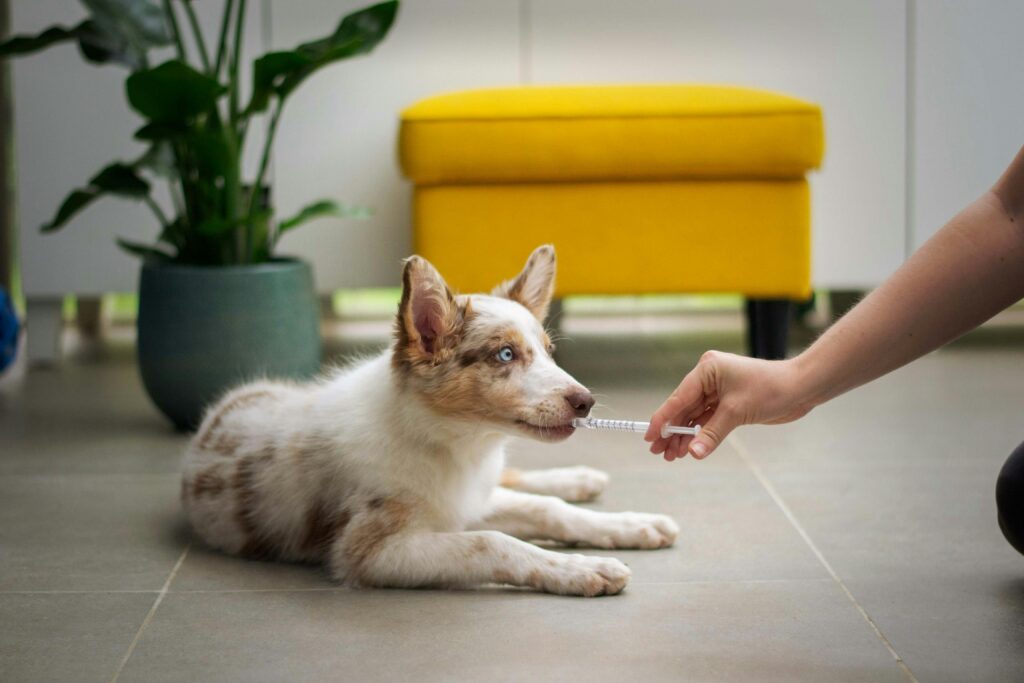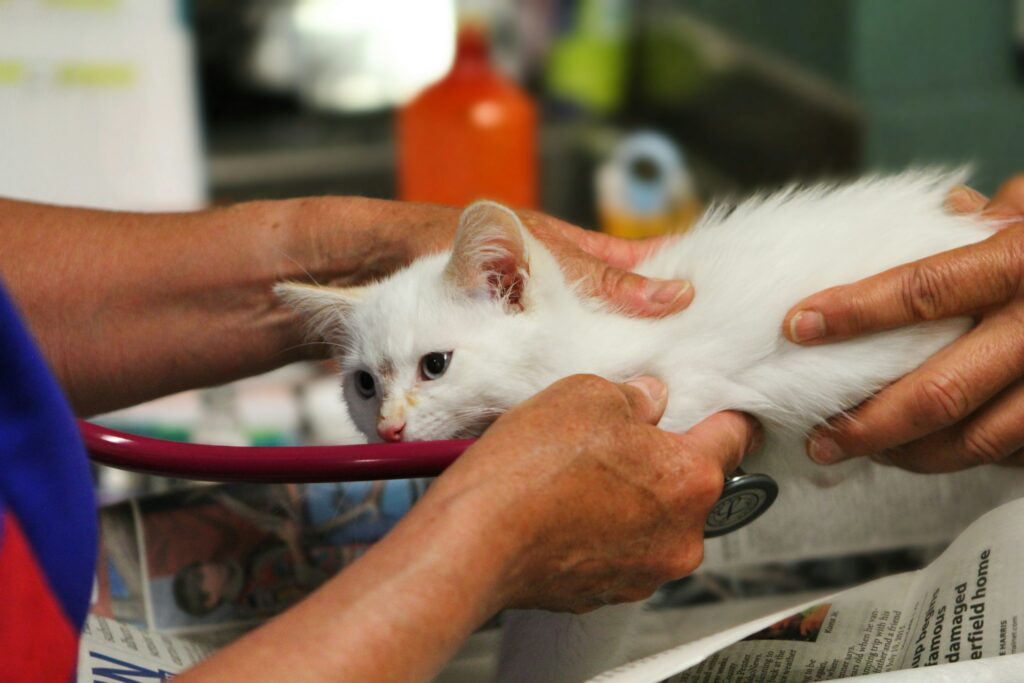
Just like humans, pets can suffer from allergies that affect their health and comfort. Recognizing the signs of pet allergies and understanding how to address them is crucial for ensuring your furry friend’s well-being. This guide will help you identify common allergy symptoms in pets, explore potential causes, and provide effective solutions to manage and alleviate their discomfort.
Common Symptoms of Pet Allergies
Identifying pet allergies can be challenging, as symptoms often resemble other health issues. However, certain signs may indicate an allergic reaction:
Excessive Scratching or Biting: Persistent itching, leading pets to scratch or bite their skin, is a common indicator of allergies.
Red, Inflamed Skin: Allergic reactions can cause skin irritation, resulting in redness, swelling, or the development of rashes.
Ear Infections: Frequent ear infections or noticeable discomfort in the ear area may be linked to allergies.
Watery, Itchy Eyes: Pets with allergies might have red, watery eyes or exhibit frequent blinking and pawing at their eyes.
Sneezing and Runny Nose: Respiratory symptoms such as sneezing, coughing, or nasal discharge can indicate an allergic response.
Digestive Issues: Vomiting, diarrhea, or frequent gas may be signs of food allergies.
Paw Licking or Chewing: Obsessive licking or chewing of paws can be a response to allergens.

Common Causes of Pet Allergies
Understanding the triggers of pet allergies is essential for effective management. Common allergens include:
Environmental Allergens: Pollen, mold, dust mites, and other airborne particles can cause allergic reactions in pets.
Fleas and Parasites: Flea saliva is a common allergen, leading to flea allergy dermatitis.
Food Ingredients: Certain proteins, grains, or additives in pet food can trigger food allergies.
Household Products: Cleaning agents, perfumes, or fabrics may contain chemicals that provoke allergic reactions.
Diagnosing Pet Allergies
If you suspect your pet has allergies, consult a veterinarian for a proper diagnosis. The diagnostic process may involve:
Detailed History: Providing information about your pet’s diet, environment, and symptom onset.
Physical Examination: Assessing your pet’s overall health and identifying visible signs of allergies.
Allergy Testing: Conducting skin or blood tests to identify specific allergens.
Elimination Diet: Implementing a special diet to pinpoint food-related allergies.

Effective Solutions for Managing Pet Allergies
Once allergens are identified, various strategies can help manage and alleviate your pet’s symptoms:
Environmental Control
Regular Cleaning: Maintain a clean living environment by vacuuming frequently and washing your pet’s bedding to reduce allergens.
Air Purifiers: Using air purifiers with HEPA filters can help remove airborne allergens from your home.
Limit Outdoor Exposure: During high pollen seasons, minimize your pet’s time outdoors to reduce exposure.
Flea Prevention
Consistent Flea Control: Use veterinarian-recommended flea prevention products to protect your pet from flea bites.
Regular Grooming: Bathing and brushing your pet can help remove fleas and reduce allergen buildup.
Dietary Management
Hypoallergenic Diets: Switch to hypoallergenic or limited-ingredient diets to identify and eliminate food allergens.
Consult a Veterinarian: Seek professional advice before making significant changes to your pet’s diet.
Medications and Treatments
Antihistamines: Over-the-counter antihistamines may provide relief but should be used under veterinary guidance.
Corticosteroids: In severe cases, corticosteroids can reduce inflammation and alleviate symptoms.
Immunotherapy: Allergy shots may be recommended for long-term management of severe allergies.

Preventative Measures
Taking proactive steps can help prevent the onset or worsening of pet allergies:
Regular Veterinary Check-ups: Routine visits allow for early detection and management of potential allergies.
Balanced Diet: Providing a nutritious diet supports overall health and can reduce the risk of developing food allergies.
Stress Reduction: Minimizing stress through regular exercise and mental stimulation can improve your pet’s immune response.
Conclusion
Recognizing and addressing pet allergies is essential for maintaining your pet’s health and quality of life. By understanding the symptoms, identifying triggers, and implementing effective management strategies, you can help your pet lead a comfortable and happy life. Always consult with a veterinarian to develop a tailored approach suited to your pet’s specific needs.
References
Allergies in Cats – https://vcahospitals.com/know-your-pet/allergies-in-cats
Common Allergies in Dogs and Cats and How to Treat Them – https://www.brownswitchpethospital.com/blog/common-allergies-in-dogs-and-cats-and-how-to-treat-them/
Can Dogs Be Allergic to Cats? – https://www.petmd.com/dog/general-health/can-dogs-be-allergic-to-cats
Share this:
- Click to share on WhatsApp (Opens in new window) WhatsApp
- Click to share on Facebook (Opens in new window) Facebook
- Click to share on LinkedIn (Opens in new window) LinkedIn
- Click to share on Pinterest (Opens in new window) Pinterest
- Click to share on Tumblr (Opens in new window) Tumblr
- Click to share on X (Opens in new window) X
- Click to share on Reddit (Opens in new window) Reddit
- Click to share on Telegram (Opens in new window) Telegram
- Click to email a link to a friend (Opens in new window) Email
- Click to print (Opens in new window) Print































